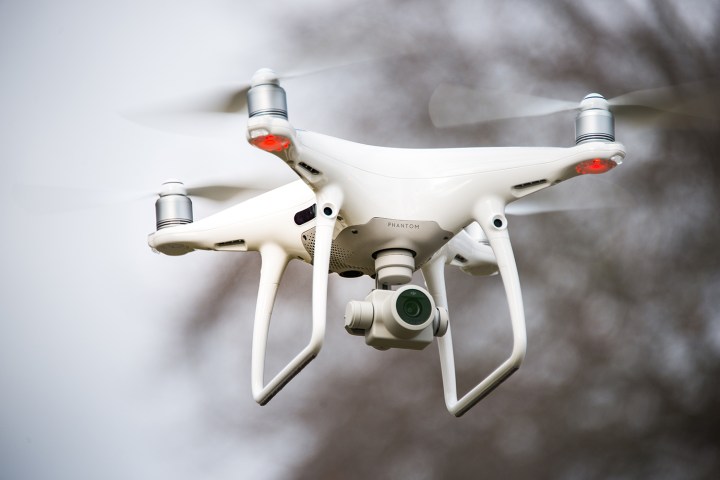
Mantis Drone Claw ($16)

Ever been out flying your drone and spotted something that you wanted to snatch? Check out this DIY kit for the Mantis Drone Claw. It’s essentially a gravity-operated, prize-machine-style mechanical claw that’ll allow your drone to latch onto (and carry away) any small objects that you might want to steal borrow from innocent bystanders your neighbors.
WaterStrider Landing Gear ($119)

Maybe all that long range, long term, extended voyage type of drone flying isn’t for you, and you just want to enjoy a peaceful day at the lake. If that sounds like your style, the WaterStrider is the landing platform you’ve been waiting for. Granting you the ability to land on nearly any surface (including water), this gizmo will open up a lot of freedom for you and your drone.
Carbon Fiber Skin ($49)

No disrespect to DJI, but the Phantom line’s stock white/grey colorway is about as dull as they come. If you agree, and you’re looking for something that’ll make your bird stand out from the rest of the pack, then we highly recommend that you check out this slick black carbon fiber wrap.
Phantom 4 Compact Backpack ($79)

Before you go buying a bunch of extra toys for your toy, getting something to haul it all around in might be a good idea. Check out this compact backpack specially made to house your Phantom 4 and all its accessories.
Lense Kits ($39+)

With the Phantom 4’s impressive camera and recording capabilities, it seems silly to stay constrained to just one lens. Check out these different packs of lens kits to get the most out of your camera.
Range extender upgrade ($249+)

The Phantom 4 boasts a range of several miles, but are you getting all of it? Equipping your rig with a range extender upgrade will give your drone considerably better range and reliability. With a good extender, you won’t lose signal when you fly behind hills or buildings.
Trackimo GPS Tracking Device ($100)

With all that extra range, you’re going to want to keep track of your very expensive flying robot. Check out Tackimo’s GPS system to make sure you know where your Phantom 4 is at all times.
64GB microSDHC upgrade with dongle ($69)

Now that you’ve got all that range and the confidence to use it, you’ll likely need a lot more memory for all that sweet, sweet aerial footage you’re going to capture. Upgrade from the Phantom 4’s default 16GB to this 62GB card with an included high speed dongle.
Thor Super-Chargin Station ($149)

So you’ve got your bag and all your extra range. Now it’s time to hit some trails and get some sweet footage — but wait! You’re undoubtedly going to want a lot more battery life for that trip, right? The Thor Super-Charger has got you covered.
Fat Shark HD FPV Goggles ($429)

It’s popular opinion that if you haven’t experienced drone flight through a pair of First Person Goggles then you are missing out, and we are keen to agree. This pair of goggles from Fat Shark will not only satisfy your FPV needs for the Phantom 4, but plenty of other drones as well.




